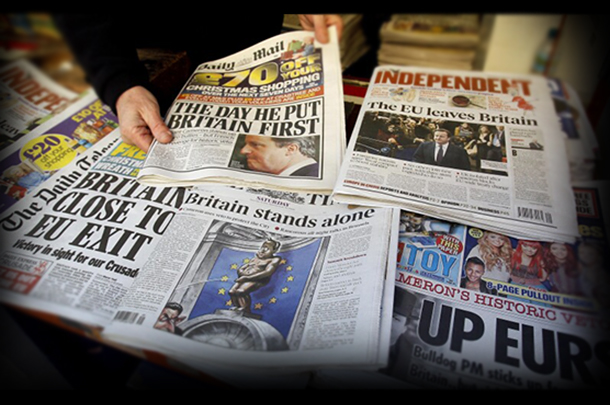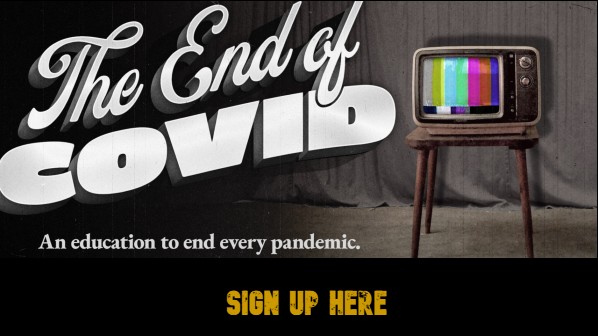
Niall McCrae
21st Century Wire
They’re still there: on supermarket shelves, petrol stations and convenience shops. But the bundles are much smaller now. Some retailers stock a limited selection, or take a single copy of the Guardian, with only the Daily Mail and Sun making the distribution worthwhile. But for how much longer can the daily newspaper, that faded icon of British social life, survive?
The terminal decline began two decades ago, on 11th September 2001. The attack on the World Trade Center in New York surely surpassed other historical landmarks in our collective memory, such as the death of Princess Diana, the breach of the Berlin Wall, or even the seminal Sixties events of the moon landing and assassination of JFK.
At the turn of the millennium, our national newspapers were competing in a boisterous market, with steady sales bolstered by freebies such as tickets to Alton Towers, CDs of pop and classical music and films on DVD. The Saturday edition of the Daily Telegraph was so thick with supplements that you needed a wheelbarrow to carry it home. Back then, the Telegraph sold a million daily, the Mail two million and the Sun over three million.
My local railway station had a magazine stall, and the busy rush-hour platform was lined with commuters reading their chosen version of the news. Many of these same people also bought the Evening Standard for the journey home. But newsagents were threatened by the free Metro paper, which was available at every railway and underground station. For a while, the owner of the Carshalton news stand would move the Metro stack out of sight. Understandably – he was protecting his livelihood. But eventually he succumbed.
Why was 9/11 so key to the demise of the newspaper? The wider context is that the internet transformed society, shifting us from the analogue to the digital world. But I would be more specific in identifying the turning point. As the Twin Towers were struck, office workers like me dropped our duties to watch this seismic and shocking event. In my workplace the internet connection crashed. In the City of London and Canary Wharf, workers were sent home early in fear of a similar act of terror.
9/11 highlighted the inadequacy of newspapers as a source of news. On the following day they told us that twenty thousand were killed. That was a gross overestimate, based on a worst-case scenario of the night before (officially, three thousand perished). The press retained its value as commentary, but in the hours and days after the Manhattan terror, people had an appetite for immediacy. As well as scheduled news bulletins on the BBC, viewers increasingly turned to 24-hour cable channels with their hyperbolic ‘breaking news’.
More significantly, 9/11 was the impetus for a burgeoning industry of alternative news media on the worldwide web. And the attraction was not so much up-to-the-minute coverage, but a critical perspective not seen or heard on mainstream media.
I believed the 9/11 story at the time, but this was the first major incident in which the official narrative was widely disbelieved. Critical thinkers were not convinced that Saudi terrorists’ passports escaped the fate of all other material from steel girders to human bones, which had disintegrated to dust at Ground Zero. They doubted that a large airliner crashed into the low wall of the Pentagon, flown by pilots who had completed basic training. They did not see it as mere coincidence that a BBC journalist, reporting live from a few blocks away, told viewers that Building 7 had also collapsed (despite it standing behind her, but tumbling in an apparently perfectly controlled demolition twenty minutes later).
This was the event that showed the gatekeeping role of the national press. Whereas the BBC was expected to be cautious, neutral and objective, there was no reason for newspapers normally hypercritical of USA and its foreign policy (such as the Independent) to stick to the tale of Osama bin Laden’s plot from an Afghan cave.
It wasn’t until 2016 that I began to realise the conspiracy of curated reality. I attended a large rally for the campaign to leave the EU, at Queen Elizebeth Hall near Westminster, where the top-of-the-bill speaker Nigel Farage introduced a mystery guest. It was George Galloway, to the bemusement of many among the mostly conservative audience. But the finest orator in the land, as Farage presented him, won over the crowd with a rumbustious case for Brexit.
Expecting to read a triumphal account in the Eurosceptic newspapers on the following morning, I was disillusioned. The Daily Mail, in a harsh ad hominem, told a blatant lie that Galloway’s entrance led to a mass walkout.
Nowadays, there should be no doubt that the Mail is not really an organ of socially conservative Middle England. It still throws red meat to readers, but its collusion with the trans agenda is shown by reporting men who identify as women (such as comedian and would-be Labour MP Eddie Izzard) as ‘she’.
Too many people have woken up. They are drawn to independent online media not only because they are bolder and brighter, but because they are more likely to be telling the truth. From the trailblazers at the time of 9/11 to Breitbart and Guido Fawkes, and then to TCW, Daily Sceptic and 21st Century Wire, there is no shortage of critical analysis for those who seek it.
There is one exception to the malaise in print. A free monthly, The Light newspaper, an independent, grass roots venture, which joins the dots on a host of timely issues, like the globalist agenda behind the removal of cash, digital surveillance, curbs on consumption of energy and food, Net Zero, the global pandemic treaty, ‘woke’ identity politics and eugenics. There is almost no overlap between what this paper reports, and the controlled coverage in the Times (the newspaper of record) on the BBC. And that’s why the BBC is trying to destroy the only newspaper which actually has a growing readership in Britain, and beyond.
READ MORE PROPAGANDA NEWS AT: 21st CENTURY WIRE PROPAGANDA FILES
ALSO JOIN OUR TELEGRAM CHANNEL
SUPPORT OUR INDEPENDENT MEDIA PLATFORM – BECOME A MEMBER @21WIRE.TV
















